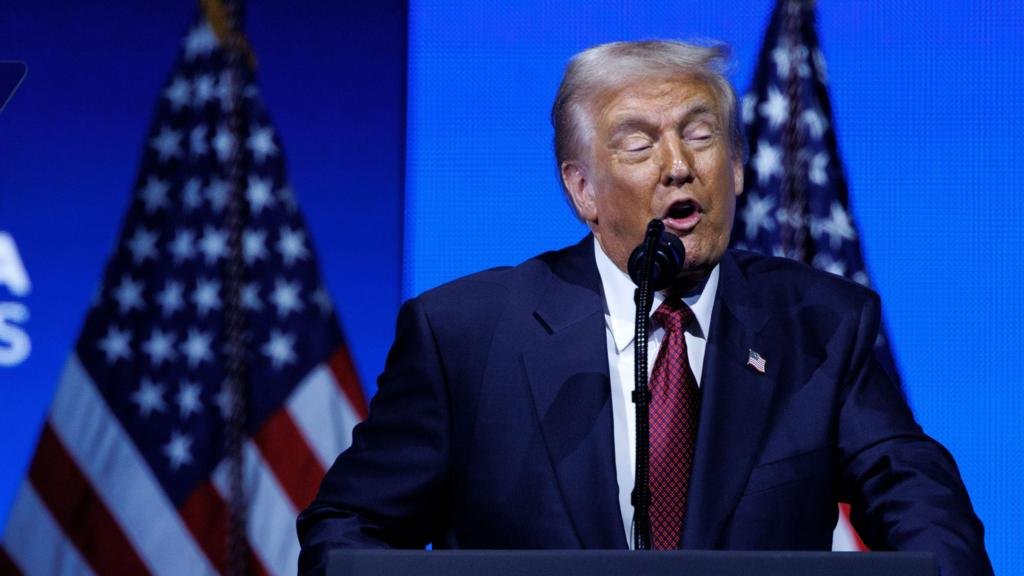In the ever-evolving landscape of American politics, the discourse surrounding taxation remains a hot-button issue. Former President Donald Trump has consistently utilized social media and public addresses to present ideas aimed at fundamentally changing how taxes are collected and utilized in the United States. While some of these proposals are still in their nascent stages, they harbor the potential to reshape the American tax system dramatically. In this blog, we’ll explore the key concepts that could define Trump’s vision for taxation.
The Flat Tax Revolution
One of the most talked-about ideas circulating around Trump is the notion of a flat tax. Imagine a tax system where everyone pays the same percentage of their income, regardless of earnings. Advocates for this system argue that it simplifies the tax code and reduces the burden on middle-class Americans. This radical change could streamline tax filings and make the system more transparent. However, critics worry that a flat tax may disproportionately benefit the wealthy while placing a heavier burden on lower-income families.
Reducing the Tax Burden
Trump has frequently touted the idea of eliminating or reducing specific taxes, such as federal income tax for lower-income earners and capital gains taxes. Supporters claim that these changes could spur economic activity by putting more money into the hands of consumers and investors. Yet, skeptics question how significant revenue losses would be addressed and whether this approach would lead to increased inequality.
Expanding Tax Credits and Deductions
Under Trump’s previous administration, there was a considerable push to expand the standard deduction and increase tax credits for families. Such measures can provide immediate financial relief to many households, fostering consumer spending and stimulating the economy. However, the long-term effects on federal revenue and funding for public services would need careful consideration.
Tariffs as a Revenue Source
In addition to domestic tax policies, Trump’s approach to international trade—marked by the implementation of tariffs—also presents a novel way of generating government revenue. By taxing imports, the government could potentially derive significant funds that might offset other tax cuts. Still, this approach carries the risk of escalating trade tensions and potentially harming consumer prices.
Revamping Corporate Taxes
Another area Trump seeks to overhaul is corporate taxation. By modifying corporate tax rates and incentives, he aims to encourage businesses to keep their profits within U.S. borders. This could lead to greater domestic investment and job creation. However, critics argue that this could result in a race to the bottom among states looking to attract businesses, ultimately leading to decreased public revenue.
Simplifying the Tax Code
One of the most compelling arguments Trump makes is centered around simplification. The current tax code is often criticized for being overly complex, filled with deductions, credits, and loopholes that many taxpayers stumble over. By proposing a more streamlined approach, Trump envisions a tax system that is easier for individuals and businesses to navigate—though the feasibility of removing certain deductions raises questions about equity and fairness.
Focus on Enforcement and Compliance
In addition to redefining how taxes are collected, Trump’s administration suggests a renewed emphasis on IRS enforcement to combat tax evasion, especially among the wealthy. Improved compliance could bridge some revenue gaps without raising tax rates, making it a compelling part of any ambitious tax reform agenda.
Conclusion: The Path Ahead
Trump’s ideas represent a bold rethinking of the American tax system, with the potential to upend established norms and practices. While such changes might promise simplification and reduced burdens for some, they also raise complex questions regarding revenue, equity, and long-term economic impact. As discussions continue and the political landscape shifts, the future of taxation in America remains an open question, one that will undoubtedly shape financial policy for years to come.
Are you ready to engage in the debate? How do you feel about the prospect of such significant changes in the tax system? Share your thoughts in the comments below!




